Uncategorized
-
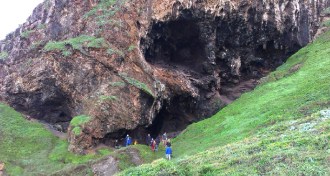 Archaeology
ArchaeologyCave debris may be the oldest known example of people eating starch
Charred material found in South Africa puts energy-rich roots and tubers on Stone Age menus, long before farming began.
By Bruce Bower -
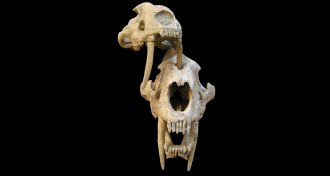 Paleontology
PaleontologyFossils reveal saber-toothed cats may have pierced rivals’ skulls
Two Smilodon fossil skulls from Argentina have puncture holes likely left by the teeth of rival cats.
-
 Astronomy
AstronomyWatch the oldest surviving film of a total solar eclipse
A short film of the 1900 total solar eclipse was restored by conservation experts and is now available to view online.
-
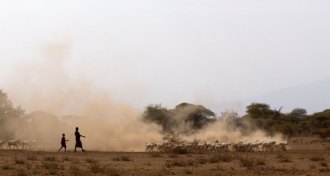 Anthropology
AnthropologyAfrica’s first herders spread pastoralism by mating with foragers
DNA unveils long-ago hookups between early pastoralists and native hunter-gatherers in Africa.
By Bruce Bower -
 Health & Medicine
Health & MedicineA fungus weaponized with a spider toxin can kill malaria mosquitoes
In controlled field experiments in Burkina Faso, a genetically engineered fungus reduced numbers of insecticide-resistant mosquitoes that can carry malaria.
-
 Chemistry
ChemistryVaping the sweetener sucralose may produce toxic chemicals
Sucralose in e-liquids can break down, increasing toxic aldehydes in vapors and producing harmful organochlorines, including a potential carcinogen.
-
 Astronomy
AstronomyQuestions about solar storms, slingshot spiders and more reader feedback
Readers had questions about solar storms, a robotic gripper, slingshot spiders and more.
-
 Health & Medicine
Health & MedicineResurgence of measles is a tale as old as human history
Editor in Chief Nancy Shute discusses the recent global measles outbreak and the history of the spread of pathogens.
By Nancy Shute -
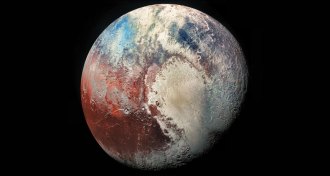 Planetary Science
Planetary ScienceIcy volcanoes on Pluto may have spewed organic-rich water
Planetary scientists found ammonia-rich ice near cracks on Pluto, suggesting the dwarf planet had recent icy volcanoes.
-
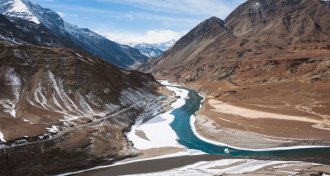 Climate
ClimateHimalayan glacier melting threatens water security for millions of people
Asia’s glaciers are melting faster than they are accumulating new stores of snow and ice.
-
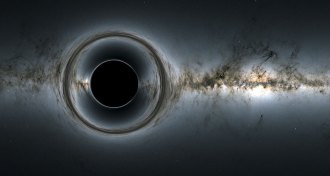 Physics
PhysicsIn a first, scientists took the temperature of a sonic black hole
A lab-made black hole that traps sound, not light, emits radiation at a certain temperature, as Stephen Hawking first predicted.
-
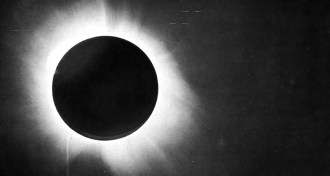 Physics
Physics100 years ago, an eclipse proved Einstein right. Today, black holes do too — for now
In 1919, an eclipse affirmed Einstein’s famous general theory of relativity. Now scientists hope to use black holes to poke holes in that idea.